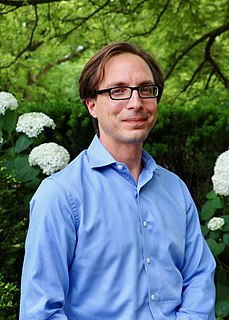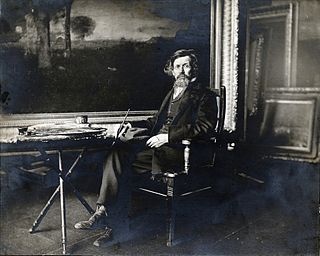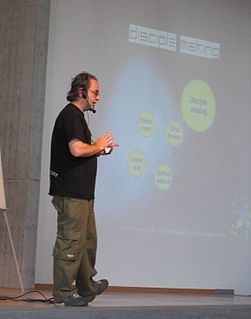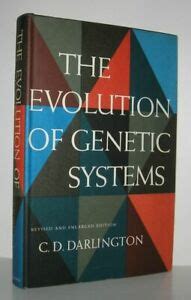Top 236 Reproduction Quotes & Sayings - Page 4
Explore popular Reproduction quotes.
Last updated on April 16, 2025.
Walter Benjamin talks about art losing its original "aura" in an age of mechanical reproduction. In writing memoir, we're taking something that happened in a particular moment and meant something at that time, and we're trying to capture it to mass reproduce it for readers. So of course something is lost. And when we edit that material, we're getting even further from that aura, but toward something else that is potentially vital.
If I seem detached or distant, it's because I think this is a more exact reproduction of life, where you hide as much as you show. When I see a scene in which feelings get loudly exteriorized, I say to myself, 'Well, at least this never happens to me.' I very rarely go through this type of expression. Most of the time things are hidden or at least much more subdued.
Free election of masters does not abolish the masters or the slaves. Free choice among a wide variety of goods and services does not signify freedom if these goods and services sustain social controls over a life of toil and fear – that is, if they sustain alienation. And the spontaneous reproduction of superimposed needs by the individual does not establish autonomy; it only testifies to the efficacy of the controls.
The theory of natural selection is the centerpiece of The Origin of Species and of evolutionary theory. It is this theory that accounts for the adaptations of organisms, those innumerable features that so wonderfully equip them for survival and reproduction; it is this theory that accounts for the divergence of species from common ancestors and thus for the endless diversity of life. Natural selection is a simple concept, but it is perhaps the most important idea in biology.
I believe that now and always the conscious selection of the best for reproduction will be impossible; that to propose it is to display a fundamental misunderstanding of what individuality implies. The way of nature has always been to slay the hindmost, and there is still no other way, unless we can prevent those who would become the hindmost being born. It is in the sterilization of failure, and not in the selection of successes for breeding, that the possibility of an improvement of the human stock lies.
Morality is a biological adaptation no less than are hands and feet and teeth... Considered as a rationally justifiable set of claims about an objective something, ethics is illusory. I appreciate that when somebody says, 'Love thy neighbor as thyself,' they think they are referring above and beyond themselves... Nevertheless... such reference is truly without foundation. Morality is just an aid to survival and reproduction... and any deeper meaning is illusory...
Humans became easy prey when they moved from the forest to the savanna, which deprived them of the option of climbing trees to flee predators. This shift made it necessary for the men to actively protect the women and their babies. Only as a result of this protection were women able to give birth in shorter intervals, perhaps once every two or three years. This meant that they could produce offspring about twice as frequently as apes. I would be willing to bet that this rapid reproduction is one of the reasons why we dominate the world today, and not the apes.
I now believe that the universe was brought into existence by an infinite Intelligence. I believe that this universe's intricate laws manifest what scientists have called the Mind of God. I believe that life and reproduction originate in a divine Source. Why do I believe this, given that I expounded and defended atheism for more than a half century? The short answer is this: this is the world picture, as I see it, that has emerged from modern science.
Here's the thing. I hate kids. Always have. I mean, I know the job of the race, biologically speaking, is to achieve immortality through reproduction, but the idea of getting impregnated and blowing up like a balloon as I serve as a carrier and service unit for this other person who will eventually burst out of me in the most terrifying way imaginable, then carry on using me one way or another for the rest of my life, is right up there with throwing myself off the top of a twenty-story building. If I have a biological clock, it is digital and does not tick.
The very comprehensibility of the world points to an intelligence behind the world. Indeed, science would be impossible if our intelligence were not adapted to the intelligibility of the world. The match between our intelligence and the intelligibility of the world is no accident. Nor can it properly be attributed to natural selection, which places a premium on survival and reproduction and has no stake in truth or conscious thought. Indeed, meat-puppet robots are just fine as the output of a Darwinian evolutionary process.
War to me is very much like sex. You can develop a theory that says sex is primarily for the exchange of genetic material, or that it's a celebration of life, or you can make up 50,000 theories about why human beings have sex, all of which are in some sense true, all of which by themselves miss the point. Because the answer is extraordinarily complex. It may be for fun, it may be for reproduction, for financial reasons, any number of things.
... [L]ess than at any time does a simple reproduction of reality tell us anything about reality. A photograph of the Krupp works or GEC yields almost nothing about those institutions. Reality proper has slipped into the functional. The reification of human relationships, the factory, let's say, no longer reveals these relationships. Therefore something has to be constructed, something artificial, something set up.
High quality water is more than the dream of the conservationists, more than a political slogan; high quality water, in the right quantity at the right place at the right time, is essential to health, recreation, and economic growth. Of all our planet's activities - geological movements, the reproduction and decay of biota, and even the disruptive propensities of certain species (elephants and humans come to mind) - no force is greater than the hydrologic cycle.
In general, in all my films, I choose to create a certain mistrust, rather than claiming that what I'm showing onscreen is an accurate reproduction of reality. I want people to question what they are seeing onscreen. In the same way as I used the narrator, I also used black and white, because it creates a distance toward what's being seen. I see the film as an artifact rather than a reliable reconstruction of a reality that we cannot know.
To use the image of Che Guevara to sell vodka is a slur on his name and memory. He never drank himself, he was not a drunk, and drink should not be associated with his immortal memory... As a supporter of the ideals for which Che Guevara died, I am not averse to its reproduction by those who wish to propagate his memory and the cause of social justice throughout the world.
All the acquisitions or losses wrought by nature on individuals, through the influence of the environment in which their race has long been placed, and hence through the influence of the predominant use or permanent disuse of any organ; all these are preserved by reproduction to the new individuals which arise, provided that the acquired modifications are common to both sexes, or at least to the individuals which produce the young.
For men to focus on controlling women's reproduction to solve a society's problems seems nothing short of mad or, at best, superstitious. But men's superstition or insanity has real and dire consequences for the women who are its object. And states, too, home in on women's bodies, perhaps to create the illusion that men are in control of uncontrollable forces. Indeed, almost all governments try to control women's bodies and regulate their appearance in some way.
Our immediate interests are after all of but small moment. It is what we do for the future, what we add to the sum of man's knowledge, that counts most. As someone has said, 'The individual withers and the world is more and more.' Man dies at 70, 80, or 90, or at some earlier age, but through his power of physical reproduction, and with the means that he has to transmit the results of effort to those who come after him, he may be said to be immortal.
In trying to evaluate Hopkins' unique contribution to biochemistry it may perhaps be said that he alone amongst his contemporaries succeeded in formulating the subject. Among others whose several achievements in their own fields may have surpassed his, no one has ever attempted to unify and correlate biochemical knowledge so as to form a comprehensible picture of the cell and its relation to life, reproduction and function.
So far as photography satisfied a wish, it satisfied a wish not confined to painters, but a human wish, intensifying since the Reformation, to escape subjectivity and metaphysical isolation - a wish for power to reach this world, having for so long tried, at last hopelessly, to manifest fidelity to another... Photography overcame subjectivity in a way undreamed of by painting, one which does not so much defeat the act of painting as escape it altogether: by automatism, by removing the human agent from the act of reproduction.
My reason [for making my own paint] is to force a real-time experience of the work. Most work today is experienced by reproduction, and more specifically by computer screen, like jpegs, but an RGB simulation of fluorescent will never fully accurately depict some colors. For example, our eyes are a lot more sophisticated than you might assume. You can feel a lot more going on on the surface of a canvas than you can on the surface of a screen.
Proof, being the highest level of reproduction activity, has an important interiorization aspect: as Yuri Manin stresses in his book Provable and Unprovable, a proof becomes such only after it is accepted (as the result of a highly rigorous process) ... Manin describes the act of acceptance as a social act; however, the importance of its personal, psychological component can hardly be overestimated.
In liberal society we claim that freedom of speech is sacred and therefore has an absolute character. But we know (or should know) that "free speech" inhabits a structured space: not only is "hate speech" legally forbidden in liberal societies, but there are also laws protecting the circulation of copyrighted material, and the reproduction of trademarks and patents without explicit permission.
We are still in various kinds of patriarchal systems. The very definition of patriarchy is that men control women as the means of reproduction, so the idea that a woman's main role is to have children often means society wants more workers, more soldiers. The idea that how many children we have should be controlled by the family, the church, the nation - by anyone but women themselves - is still very deep and very strong.
It was to Hofmeister, working as a young man, an amateur and enthusiast, in the early morning hours of summer months, before business, at Leipzig in the years before 1851, that the vision first appeared of a common type of Life-Cycle, running through Mosses and Ferns to Gymnosperms and Flowering Plants, linking the whole series in one scheme of reproduction and life-history.
People like me start organizing conferences and editing journals, even become tenured professors talking about Empire of the Senseless with a bunch of wide-eyed kids from the farmland. If only one of those kids goes back home and lets her hogs out of the pen to go plum wild rolling around in their own slop while the neighboring farmers scratch their chins, then, isn't that worth it? Insert the same scenario with stockbrokers, stock-car drivers, and stock characters in the post-baccalaureate working man's sideshow, and well, that's viral reproduction.
Five per cent vision is better than no vision at all. Five per cent hearing is better than no hearing at all. Five per cent flight efficiency is better than no flight at all. It is thoroughly believable that every organ or apparatus that we actually see is the product of a smooth trajectory through animal space, a trajectory in which every intermediate stage assisted survival and reproduction.
The highest art is where has been most perfectly breathed the sentiment of humanity...Some persons suppose that landscape has no power of communicating human sentiment. But this is a great mistake. The civilized landscape peculiarly can: and therefore I love it more and think it more worthy of reproduction than that which is savage and untamed. It is more significant. Every act of man, every thing of labor, effort, suffering, want, anxiety, necessity, love, marks itself wherever it has been.
The movements of nature are in a never ending circle. The animal species which has once been put into a train of motion, is still probably moving in that train. For if one link in nature's chain might be lost, another and another might be lost, till this whole system of things should evanish by piece-meal; a conclusion not warranted by the local disappearance of one or two species of animals, and opposed by the thousands and thousands of instances of the renovating power constantly exercised by nature for the reproduction of all her subjects, animal, vegetable, and mineral.
Through its prohibition on birth control, the Church has suggested that the only right way to have children is through biological reproduction: a kind of forced labor culminating in the production of another soul for God. What kind of a God stands like Lee Iacocca at the end of an assembly line, driving his workers with a greedy 'More! More!' while the automobiles pile up in showrooms and on freeways and in used-car lots and finally junkyards, his only satisfaction the gross production figures at the end of every quarter?
Although eugenics flourished in Nazi Germany, the ideal of a blond-haired, blue-eyed master race wasn’t Adolf Hitler’s. It may surprise many to know that, in Mein Kampf, Hitler credited America with helping formulate his ideas on eugenics, and he admitted he’d studied the laws of US states to familiarize himself with selective reproduction and other eugenics issues.
The most refined skills of color printing, the intricate techniques of wide-angle photography, provide us pictures of trivia bigger and more real than life. We forget that we see trivia and notice only that the reproduction is so good. Man fulfils his dream and by photographic magic produces a precise image of the Grand Canyon. The result is not that he adores nature or beauty the more. Instead he adores his camera - and himself.
There can be no sexual love without lust; but, on the other hand, until the currents of lust in the organism have been irradiatedas to affect other parts of the psychic organism--at the least the affections and the social feelings--it is not yet sexual love. Lust, the specific sexual impulse, is indeed the primary and essential element in this synthesis, for it alone is adequate to the end of reproduction, not only in animals but in men. But it is not until lust is expanded and irradiated that it develops into the exquisite and enthralling flower of love.
Holland's and Kauffman's work, together with Dawkins' simulations of evolution and Varela's models of autopoietic systems, provide essential inspiration for the new discipline of artificial life, This approach, initiated by Chris Langton (1989, 1992), tries to develop technological systems (computer programs and autonomous robots) that exhibit lifelike properties, such as reproduction, sexuality, swarming, and co-evolution.
Good art means the ability of any one man to pin down in some permanent and intelligible medium a sort of idea of what he sees in Nature that nobody else sees. In other words, to make the other fellow grasp, through skilled selective care in interpretative reproduction or symbolism, some inkling of what only the artist himself could possibly see in the actual objective scene itself.
Women well understood how to restrict birth through timing of sexual intercourse, herbs and abortifacients. I suspect the focus on men's control of women as the means of reproduction came later, in the last five percent or so of human history, with the idea of children as property and labor. One needed to have as many as possible, never mind about women's health or mobility or brainpower. Women's freedom was restricted in order to make sure of the paternity and ownership of children.
Russian law on banning nontraditional relationships basically says you cannot have any portrayal, neutral or positive, of homosexual relationships or nontraditional families, period. And you also cannot have negative portrayals of heterosexual relationships. So along the way, the law completely quashes any kind of public discussion on domestic violence. No discussion of relationships at all, unless you want to showcase a heterosexual love story, that preferably involves reproduction.
How absolute and omnipotent is the silence of night! And yet the stillness seems almost audible! From all the measureless depths of air around us comes a half-sound, a half-whisper, as if we could hear the crumbling and falling away of earth and all created things, in the great miracle of nature, decay and reproduction, ever beginning, never ending,--the gradual lapse and running of the sand in the great hour-glass of Time.
There's a willful ignorance. We indulge people who are willfully misrepresenting the facts. I don't think those [anti-choice] congresspeople are as much benignly misguided as they are intentionally and willfully ignorant of the facts of reproduction. That lends itself very well to them being ideologically driven and carrying out agendas that, if they were to be really honest about the facts, would be a tougher sell.
If women take their bodies seriously and ideally we should then its full expression, in terms of pleasure, maternity, and physical strength, seems to fare better when women control the means of production and reproduction. From this point of view, it is simply not in women's interest to support patriarchy or even a fabled "equality" with men. That women do so is more a sign of powerlessness than of any biologically based "superior" wisdom.
The term 'epitaph' itself means 'something to be spoken at a burial or engraved upon a tomb.' When an epitaph is a poem written for a tomb, and appears in a book, we are aware that we are not reading it in its proper form: we are reading a reproduction. The original of the epitaph is the tomb itself, with its words cut into the stone.
What's blinking red on my radar is the fact that for people who prioritize abortion rights, LGBTQ rights, or voting rights, those things are coming out of state legislatures, and some of the laws on reproduction stuff is coming out of city council, and so what's getting at me is the fact that there's just a fundamental lack of understanding that these laws are happening and being created by people who often won by ten votes in a midterm election.
I am aware that the conclusions arrived at in this work will be denounced by some as highly irreligious; but he who denounces them is bound to show why it is more irreligious to explain the origin of man as a distinct species by descent from some lower from, through the laws of variation and natural selection, than to explain the birth of the individual through the laws of ordinary reproduction. The birth both of the species and of the individual are equally parts of that grand sequence of events, which our minds refuse to accept as the result of blind chance.
Sexual reproduction exists solely as a means to defeat parasites. By mixing male and female genes, sex produces offspring not exactly like either the male or female - making each generation different from the last, and presenting a moving target to intruders intent on compromising this system. ... Even with this variation, parasites continue to pose a threat... and parasitism evolves and moves through any system - not just living things. The less variation there is in a system, the more readily parasites will evolve to infest it.
To say that there is a soul in stones simply in order to account for their production is unsatisfactory: for their production is not like the reproduction of living plants, and of animals which have senses. For all these we see reproducing their own species from their own seeds; and a stone does not do this at all. We never see stones reproduced from stones; ... because a stone seems to have no reproductive power at all.
Enforced by genetics, sexual reproduction, perspective, and experience, the most manifest characteristic of human beings is their diversity. The freer an economy is, the more this human diversity of knowledge will be manifested. By contrast, political power originates in top-down processes-governments, monopolies, regulators, and elite institutions- all attempting to quell human diversity and impose order. Thus power always seeks centralization.
What's hard to do is describe why you like something. Because ultimately, the reason things move people is very amorphous. You can be cerebral about things you hate, but most of the things you like tend to be very emotive. It's really hard to do a literary reproduction of what makes you happy. That's what I try to do. If nothing else, it seems like there's enough people out there telling the world what isn't cool, or what's terrible, or what's depressing. I think there's an element of cynicism in my writing, but I'm an optimistic cynic.
There is no evolutionary pressure to create minds capable of forming sciences; it just happened. Evolutionary pressure has not led to higher rates of reproduction for people capable of solving scientific problems or creating new scientific ideas. So if, in fact, the science-forming capacities evolved for other reasons, it would not be too surprising if those particular structures that have developed proved to be rather special in their nature, reflecting the contingencies of their evolution or the working of physical law.
No one attached to the traditional image of authoritarian patriarchy could imagine the consternation men endure. They have suffered an unexpected blow to the emotional quality of their lives. Its gravity has not been calculated. They have far fewer reliable links than women to the classic currents of family life. They are alienated not only, as Marx said, from the means of production but also from the means of reproduction.
The important point is that since the origin of life belongs in the category of at-least-once phenomena, time is on its side. However improbable we regard this event, or any of the steps which it involves, given enough time it will almost certainly happen at least once. And for life as we know it, with its capacity for growth and reproduction, once may be enough.
Whether [new Protestant church movements] place their emphasis on new worship styles, expressions of the Holy Spirit’s power, evangelism to seekers, or Bible teaching, these so-called new movements still operate out of the fallacious assumption that the church belongs firmly in the town square, that is, at the heart of Western culture. And if they begin with this mistaken belief about their position in Western society, all their church planting, all their reproduction will simply mirror this misapprehension.
Cell genetics led us to investigate cell mechanics. Cell mechanics now compels us to infer the structures underlying it. In seeking the mechanism of heredity and variation we are thus discovering the molecular basis of growth and reproduction. The theory of the cell revealed the unity of living processes; the study of the cell is beginning to reveal their physical foundations.
There are certain functions that the family performs. In the first place the family provides society with an orderly means of reproduction, while at the same time the norms of marriage control the potentially disruptive forces of sexuality. Second, the family provides physical and economic support for the child during the early years of dependence. The child receives its primary socialization in the family, learning the essential ideas and values required for adult life.





















































